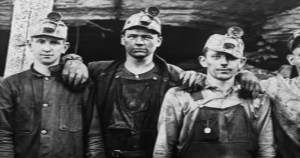
PBS Documentary Film Spotlights Lesser-Known ‘Space Men’
Mercury Seven of NASA’s first major space-flight undertaking, there were men for Projects such as Manhigh and Excelsior. No one knows them. But the project’s forgotten doctors, tinkerers, and test pilots paved the way for NASA’s headline-grabbing astronauts. The ‘Space Men’ said the riveting story, a new documentary that telecasts on Tuesday at 9 pm.
With jaw-dropping movie footage and evocative interviews with participants and experts, this Insight Films production reveals the perpetually underfunded, now-little-known scientific work that preceded the American manned space program. One says in the episode: “At 100,000 feet, you’re above 99 percent of the Earth’s atmosphere, so you might as well be in space.”

These spacemen achieved many important achievements, and they did it with dangerous, gossamer-thin, high-altitude balloons. One part of the tale might ring bells with those who recall when high-altitude skydiver Felix Baumgartner, in 2012, nearly broke the freefall duration record set by Air Force Capt. Joe Kittinger in 1960.
Kittinger, testing a multi-stage parachute system intended for use by pilots ejecting from high altitude, set a world record for the highest jump. Kittinger’s exploits proved that the three-parachute system worked as designed, but also, that human beings could withstand the upper atmosphere’s harsh conditions.

But it is the human adventurers and experimenters in “Space Men” who capture and hold your attention. One of the most interesting is John Paul Stapp, a young Army doctor at Edwards Air Force Base who designed rocket sleds to learn how G-forces affected the human body, then strapped himself into them for bruising tests. Time magazine dubbed him “The Fastest Man on Earth.”
And as the space race began in earnest, Stapp’s tests help pare NASA’s 69 candidates down to the world-famous Mercury 7. Written and directed by Amanda Pollak and produced by Pollak and Stephen Ives, “Space Men” is a treat for viewers. More significantly, this fine documentary does belated justice to Stapp and his colleagues.